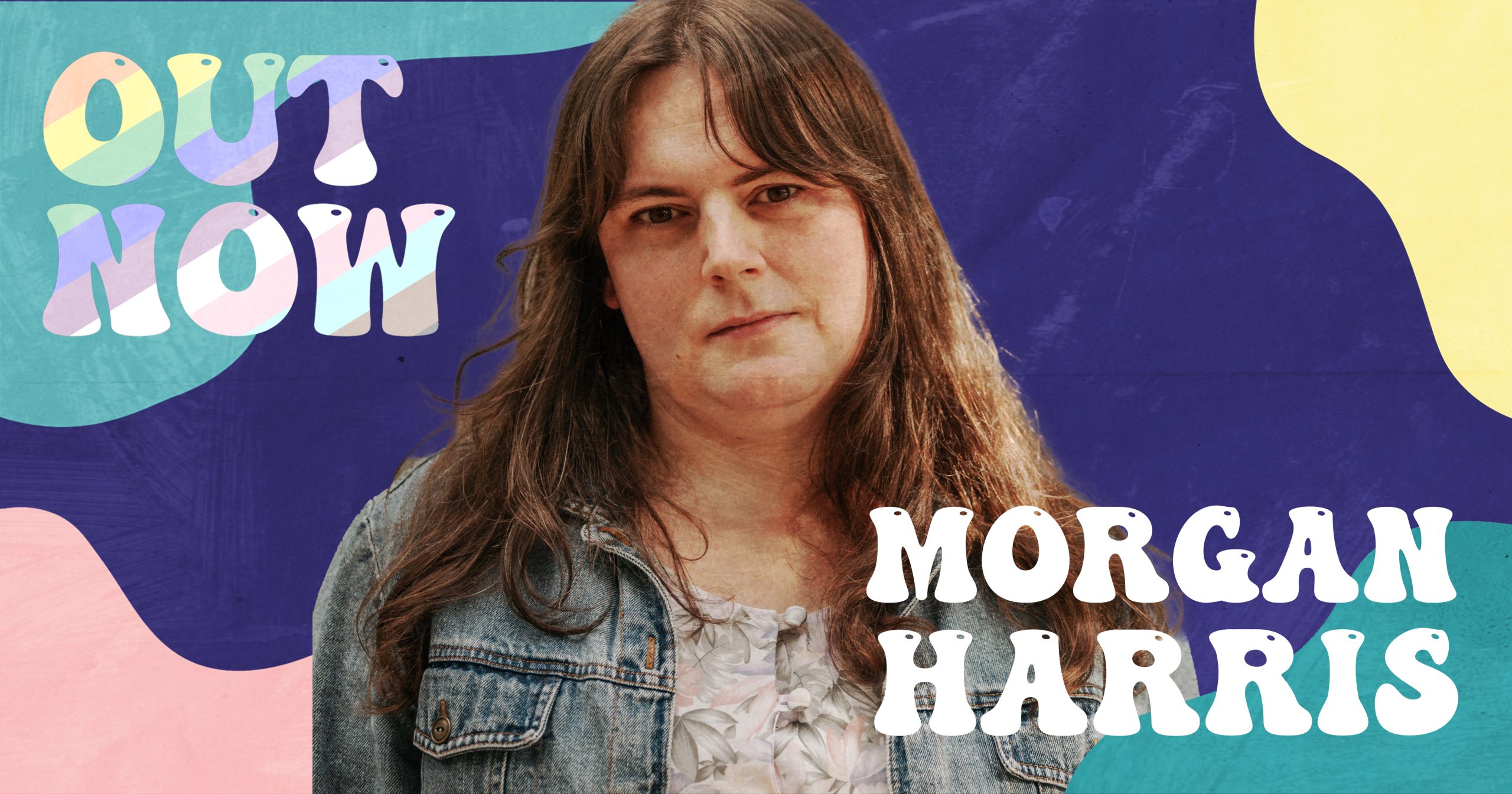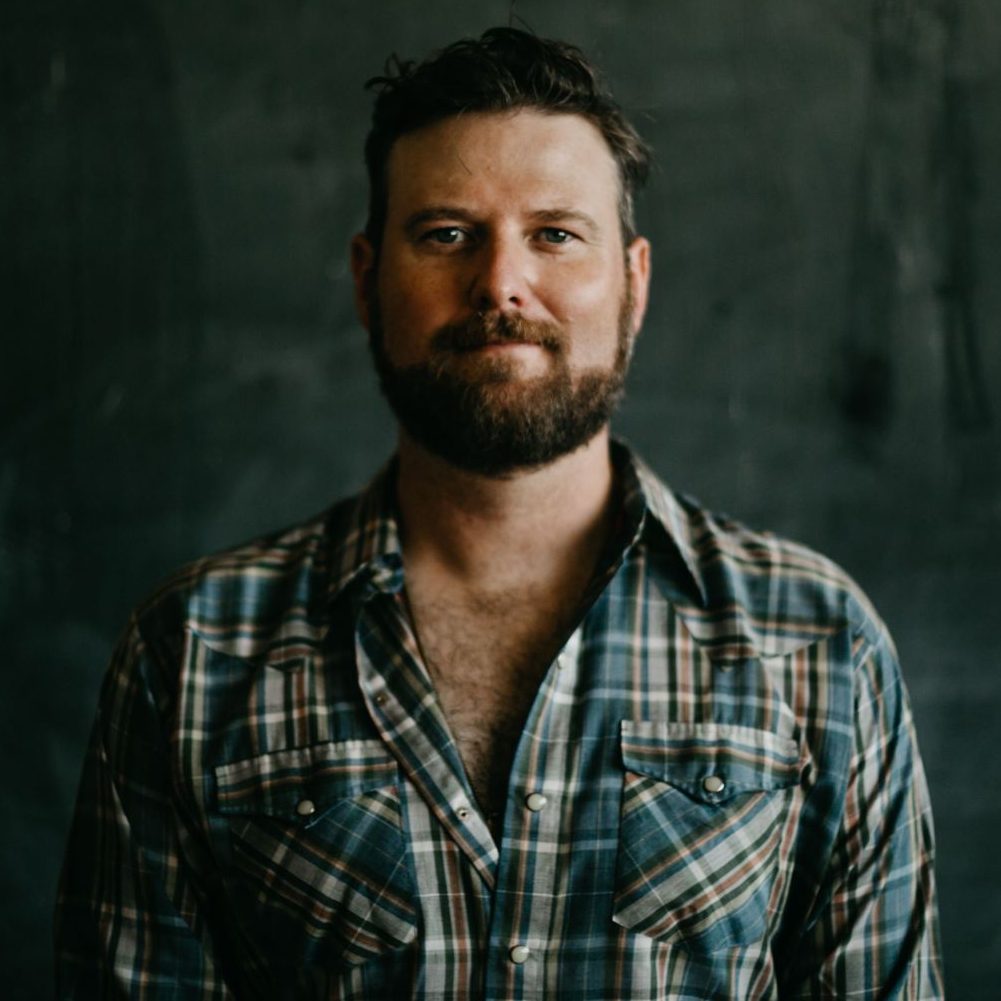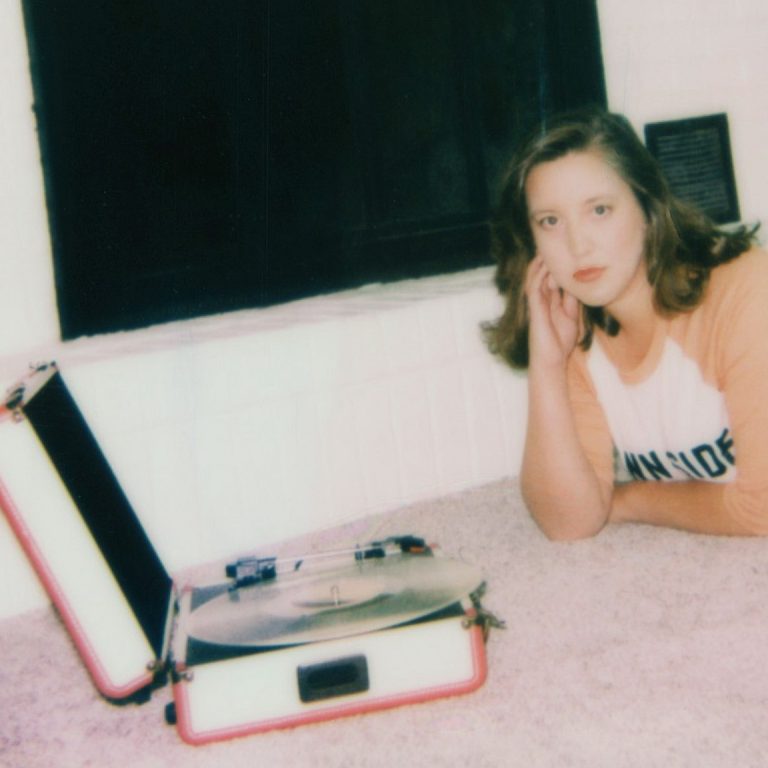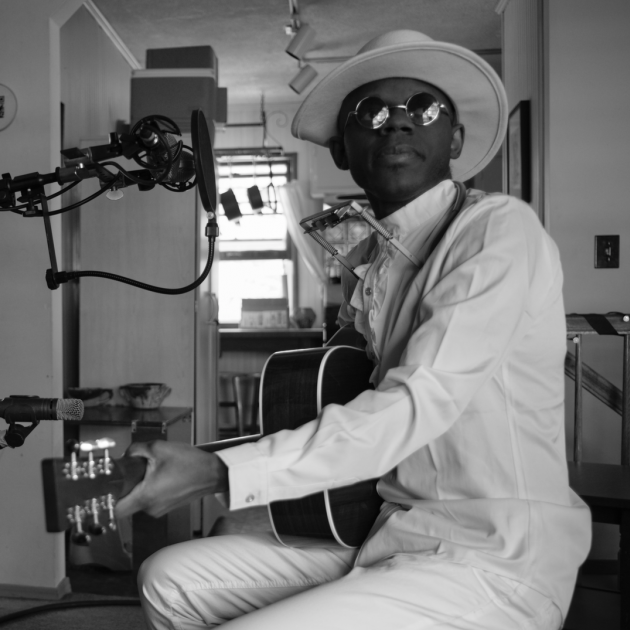Our next artist on Out Now is Morgan Harris, solo artist, old-time guitarist, and member of the Tall Poppy String Band (with Cameron DeWhitt and George Jackson). Her new solo album, Alone Will Tell, is a reflective work featuring twelve tracks.
Harris reinvents this collection of traditional tunes with a stark, raw, emotive sound. Traditional music toes a line between preserving the sounds (and sometimes the values) of the past while embracing the innovations of the future. In our interview, we talk with Harris about that central conflict in traditional music, where many individuals feel the need to “uphold tradition” – which often can be used as justification for discrimination.
This is Harris’ first release as a transgender musician. Alone Will Tell honors traditional music while illustrating innovation and transformation. We are proud to feature Morgan Harris on Out Now.
Why do you create music? What’s more satisfying to you, the process or the outcome?
I don’t know if there’s a reason I make music, other than “I like it” – it’s both as simple and as enormously complicated as that implies. I guess it’s the process that I find most satisfying, by which I mean the parts where I’m actively learning, creating, and collaborating. I’m not very good at sitting back and appreciating what I’ve created (though I’m trying to get better at that). Even as the process can be frustrating and confusing at times, and it can be tempting to think, “I’ll be satisfied if I can just finish this project,” I try to remind myself that the act of making is what I’m in it for. That’s where I ultimately find the most meaning.
You play in a trio as well, Tall Poppy String Band. How does it feel to release this album as a solo act? How does the intimacy of your solo work differ from the collaborative energy of playing in a group?
Releasing a solo record definitely feels more vulnerable! In Tall Poppy String Band I have the luxury of having two incredible musicians to support me and lend their energy, but when it’s just me, there’s no one else to lean on and nowhere to hide. Having said that, it also allows me to delve into certain aspects of my playing more deeply than I could otherwise. I love the sense of space that becomes possible when playing solo and not having to be heard over other instruments means I can really use the full dynamic range of the instrument.
You’ve mentioned that this album was shaped by “long familiarity and patient questioning.” Could you share more about what that process has been like for you, both musically and personally?
Most of the tunes and songs on this album have been with me for a while, but they’ve only taken shape very gradually. I think that’s because I’ve allowed myself to be more patient with the material – rather than rushing to pigeonhole it based on how I think it (or I) ought to sound. I’ve felt more able to let it develop in its own time, slowly uncovering what feels like the most honest and rewarding approach for me to take. And, I think I partly have my gender journey to thank for that. So much of my transition has involved a parallel kind of process, of learning to resist jumping to quick conclusions about myself (based in anxiety and internalized expectations) and trusting that in doing so, I would gradually get better at tuning in to something deeper, more elusive.
What does it mean to you to be an LGBTQ+ musician?
Queerness (and particularly trans-ness) can still be a rarity in trad music, meaning it’s easy to feel isolated in those spaces, especially when one is first considering coming out. But there is a small community out there of wonderful, welcoming queer trad musicians. I want to do my part to nourish that community and to help make queerness in these spaces not just feel like a possibility, but a given.
Also: while old-time music is a rich and beautiful tradition, it can tend to attract the type of person who links it to some imagined “simpler” past of traditional values, when people neatly and happily fell into their prescribed gender and social roles – while ignoring how such systems required, and still require, savage enforcement in order to exist.
Who are your favorite LGBTQ+ artists and bands?
I’m continually inspired by many amazing queer musicians in the old-time world, such as Jake Blount, Tatiana Hargreaves, Rachel Eddy, and Cameron DeWhitt, just to name a few. On a completely different note, I think Lena Raine’s music is incredible – her soundtrack to the video game Celeste means a lot to me.
What’s the best advice you’ve ever gotten?
“Give it time.” Suddenly realizing a few years ago that I might be trans, and all the questioning and experimenting that followed, was extremely scary and destabilizing. I often found myself anxious to quickly come to some kind of decision about what it all meant, to restore some small sense of stability. It was so helpful to be reminded in those times that I didn’t need to have the answers immediately. It takes time and practice to learn to listen to who you are, and to deconstruct the toxic stuff you’ve internalized about yourself. Even the uncertainty itself becomes more familiar with time. I took comfort in the idea that, whatever the result, I was undoubtedly doing something out of love and care for myself.
What would a “perfect day” look like for you?
Maybe hanging out at a swimming hole with my partner and our dog, thrifting something cute, getting hazelnut gelato, and playing old-time tunes all night with my best music pals from around the country. If I could somehow combine all of these, that would be pretty hard to top.
What are your release and touring plans for the next year?
I’m looking forward to touring solo in 2025 and sharing the music on this record with more people! And as usual I’ll be playing shows with my group Tall Poppy String Band. We also have plans to record a new album together next year, so I’m really excited for that.
Photo Credit: Renee Cornue Studio



